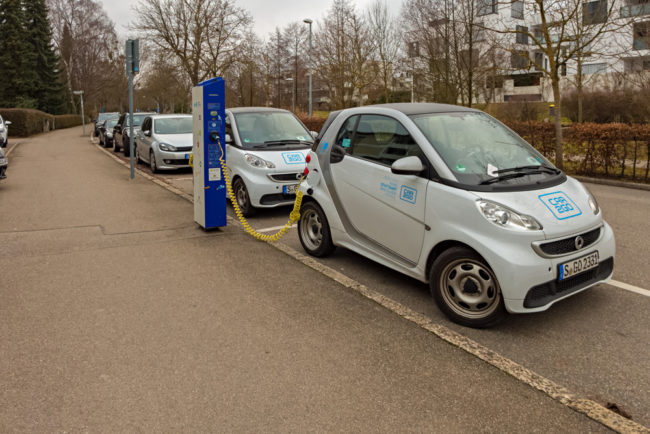The number of users of carsharing services worldwide is forecasted to grow from 23.8 million people in 2017 at a compound annual growth rate (CAGR) of 20.6 percent to reach 60.8 million people in 2022, according to a new research report by IoT analyst firm Berg Insight.
Berg Insight forecasts that the number of cars used for carsharing services will grow at a CAGR of 26.9 percent from 214,000 at the end of 2017 to 705,000 at the end of 2022.
Carsharing is one of many car-based mobility services that have become available for people that want to complement other modes of transportation with car-based mobility occasionally.
Examples of other car-based mobility services include traditional car rental, carpooling, ridesharing, taxi and ridesourcing services.
Carsharing is a decentralised car rental service focusing on short term rentals.
CarSharing Organisations (CSOs) offer members access to a fleet of shared cars 24/7 from unattended self-service locations.
Usage is billed by the minute/hour and by distance driven, with rates that include fuel, insurance and maintenance. Today, most CSOs use station-based networks with roundtrip rental. This operational model requires members to return a vehicle to the same designated station from which it was accessed.
Some CSOs have also started to offer one-way carsharing that enables users to return the car to any station operated by the CSO.

This is a charging point of the car hire company Andreas Marquardt/Shutterstock
Another model that is rapidly gaining in popularity is free floating carsharing, which enables members to pick up and drop off cars anywhere within a designated area.
New technologies in the form of telematics systems and smartphones are key enablers of carsharing services.
Leading vendors of hardware and software platforms enabling carsharing services include INVERS, Convadis, Omoove, Good Travel Software, Vulog, Ridecell, Targa Telematics and OpenFleet.
Several carsharing technology vendors are also targeting the emerging corporate carsharing market which can be used by corporations to increase corporate car pool availability and reduce mobility costs.
“Carsharing services are offered by specialist carsharing companies, car rental companies, carmakers, as well as other players such as public transport operators”, said Martin Svegander, IoT analyst at Berg Insight.
Examples of leading CSOs backed by carmakers include Car2go (owned by Daimler), DriveNow (owned by BMW) and Maven (owned by GM). Car rental CSOs include Ubeeqo (owned by Europcar) as well as Zipcar (owned by Avis Budget Group).
Examples of specialised CSOs are Times Car Plus (owned by the Japanese parking lot operator Park 24), Socar in South Korea, Pand-Auto and EvCard in China, Enjoy (owned by the Italian energy company Eni), Mobility Carsharing in Switzerland, Stadtmobil and Flinkster in Germany, Communauto in Canada and GoGet in Australia.
“There are more than 500 providers of public carsharing services globally and the top-25 of these held about 85 percent market share in terms of the number of members and managed close to 60 percent of the car fleet worldwide at the end of 2017”, said Svegander.
